7 Best Categories of Plant-Based Proteins
Some of the best protein sources are from plant-based proteins. They are in great abundance in nature and add benefits to our health in many ways.
Aside from the protetin they contain, they are rich in vitamins, minerals, carbohydrates, fiber, and antioxidants. They provide for a colorful plate and they give us lots of energy. If you thought you had to eat animal products to get enough protein, this post will give you a different perspective. That’s not to say that you need to avoid all animal products, but just that a mostly plant-based diet is wonderful for our health and well being, and helps us lose excess weight.
When you think about traditional cultures around the world, they all included a staple grain and beans. Meat, fish, and poultry have been added for a protein boost, but rarely found as a major source of protein.
Examples:
- Mideastern Countries: Tabouli salad, flat breads / lentils, hummus
- African Countries: Millet and beans
- Native American Cultures: Corn and beans
- Peruvian Culture: Quinoa and beans
- Japanese Culture: rice, soba noodles / beans, tofu, tempeh
- Chinese Culture: rice / beans, tofu
- Indian Culture: rice or wheat / beans and lentils
How do animal and plant proteins differ?
Amino acids are the building blocks of protein. There are certain amino acids we need to get from foods, as the body cannot make them. They are called essential amino acids. An animal protein is a source of all needed essential amino acids by itself. This would include a piece of fish, chicken, or beef or an egg. But when we eat plant-based proteins, we need both the grain and the bean to get all the essential amino acids. Beans have some of them, and grains have other amino acids. Together they make a complete protein. The process is called protein complementarity. We can either eat them at the same time, or have one at one meal and the other at another meal of the day. For example, we might have oatmeal for breakfast and then beans and veggies at lunchtime or for dinner.
What foods are rich in plant-based proteins?
Grains: rice, buckwheat, oats, millet, quinoa, corn, amaranth, teff, wheat (often causes inflammation in the US because of hybridization)
Beans and Lentils: chick peas, navy beans, pinto beans, black-eyed peas, kidney beans, black beans, mung beans, split peas, green or orange lentils, and many more
Veggies: some of the ones with the most protein are broccoli, spinach, asparagus, artichokes, potatoes, sweet potatoes, and Brussel sprouts
Nuts and Seeds: almonds, pecans, walnuts, cashews, pine nuts, hemp seeds, chia seeds, flax seeds, pumpkin seeds, sunflower seeds, and lots more. Eat in moderation due to high fat content
Sprouts: alfalfa, fenugreek, broccoli, radish, mung bean, and lots more
Spirulina: this is an organism that grows in both fresh and salt water
Fruits: some fruits have as much as 2-4 grams of protein per cup, as guava, blackberries, nectarines, and bananas
Here are some examples of the protein content:
Beans can have up to 15 grams of protein per cup cooked; tofu and tempeh have 10-19 grams for a 3.5 oz. serving; 1/2c dry oats or oatmeal have 6 grams of protein, 1/4c nuts have 7 grams of protein; spirulina has 8 grams of protein in 2 T.
According to the Dietary Reference Intake (RDA), we need .36 grams of protein per pound of body weight. That would be 56 grams a day for the average sedentary man and 46 grams a day for the average sedentary woman.
9 Ways to get started
Start with one small thing at a time. Here are some ideas.
- Add one or two more servings of veggies to your daily diet
- Try replacing one meat, fish, or poultry-based meals a week with a grain and bean. When the habit is established, they do 2 plant-based meals a week and slowly work your way up to the desired goal.
- Sprinkle some nuts or seeds on your salad
- Add some sprouts to your salad or sandwich
- Have some hummus and veggies for lunch
- Start your day with oatmeal
- Eat a piece of fresh fruit each day
- Have some lentil soup for lunch
- Have a few almonds for a snack
For more pointers on how to individualize your diet with more plant-based proteins, set up your free phone chat today.

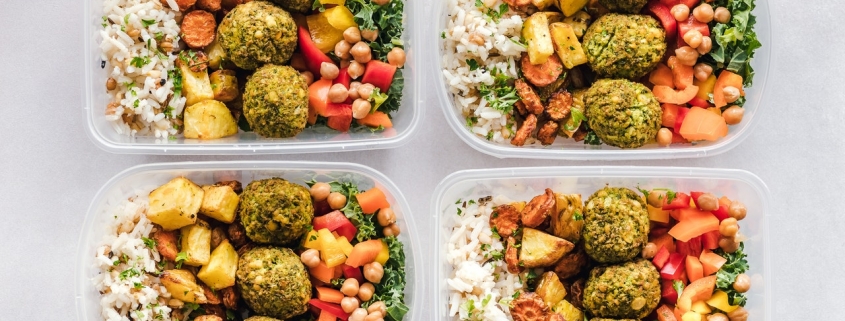
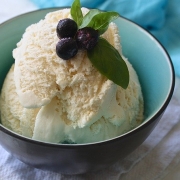
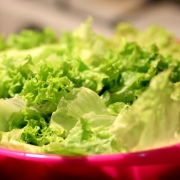
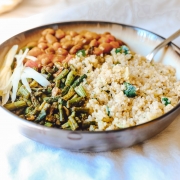
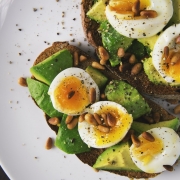
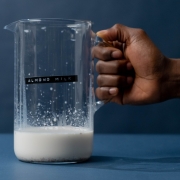
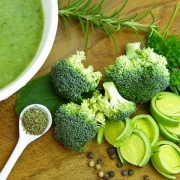


Leave a Reply
Want to join the discussion?Feel free to contribute!